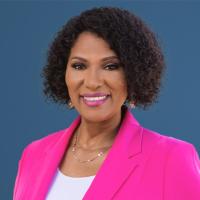'Beautiful Blessings': Couple Adopts Frozen Embryos, Delivers Twins as IVF Debate Heats Up
Millions of couples deal with infertility and more are turning to science in the hope of growing their families. The latest U.S. statistics show that in 2021, in vitro fertilization resulted in the births of more than 86,000 or two percent of babies nationwide.
Amidst growing debate over IVF, a lesser-known option called embryo adoption is also gaining ground.
For ten years Rodney and Mary Leah Miller struggled to have a family.
"Attempt after attempt, negative pregnancy test after negative pregnancy test, you begin to wonder, will this ever happen for us," Mary Leah told CBN News.
That question led the Alabama couple to undergo several rounds of in vitro fertilization which all failed.
Then in May of 2020, friends told them about embryo adoption, a process that involves a woman receiving one or several donated frozen embryos.
"We'll never forget," Rodney said. "They were very familiar with our journey and had some friends who had just had a daughter via embryo adoption. We had a new sense of hope that we hadn't experienced in a long time, and we had not given up hope during our journey. We both just had a peace about us and were very confident that this is how the Lord was going to start our family."
The Millers connected with the Snowflake Program which helps people with embryos in frozen storage to offer them for adoption.
While their first try resulted in miscarriage, the second proved doubly successful.
Two years ago, twins Dalton and Mary Elizabeth, who had been frozen embryos for 10 years, were born via C-section.
"Just a sense of joy and gratitude," explained Mary Leah. "Even though our journey was long, the Lord was faithful through all of it. To see that promise realized on December 23, 2022, I mean, it was truly a miracle."
***Please sign up for CBN Newsletters and download the CBN News app to ensure you keep receiving the latest news from a distinctly Christian perspective.***
Concerns about this technology have moved to the forefront this year, especially over the large number of embryos, which may never be implanted.
In February, the Alabama Supreme Court ignited the debate by ruling that frozen embryos, created during IVF, should be classified as children.
Then during its annual meeting in June, the Southern Baptist Convention passed a resolution expressing compassion for couples faced with infertility as well as moral caution for the IVF procedure.
Ethicist Jason Thacker helped to advise the SBC on the matter.
"We're not condemning the practice outright," Thacker told CBN News. "We're saying we must think cautiously and cultivate wisdom for how we navigate these devastating realities."
Nightlight Christian Adoptions, which is home to the Snowflake Program, estimates more than 1.5 million embryos remain in frozen storage nationwide.
CBN News asked Beth Button, the program's Executive Director, about the possibility of finding adoptive families for all those embryos.
"It really depends on how many of those embryos end up being donated for adoption," said Button. "So many of the embryos that are in frozen storage, the family who created them could potentially be still planning to use them at a later point for reproduction."
Button went on to say that many who support embryo adoption are unaware of what's involved in the practice.
"Unfortunately, it's just part of the everyday practice of in vitro fertilization that embryos are discarded," Button explained.
Such ethical issues can be difficult, especially for many Christians.
"We ourselves understand the moral and ethical issues that believers face," Rodney said. "We faced them and made very difficult decisions with our very first specialist that we spoke with on the number of embryos that we were willing to fertilize and that we wouldn't be discarding any."
Thacker sees the widespread acceptance of in vitro fertilization as the next stance in the fight for the unborn.
A recent Gallup poll found that 82 percent believe IVF to be morally acceptable, 10 percent viewed the procedure as morally wrong, and the remainder expressed no opinion.
"We're seeing not only in the state of Alabama, but other states rushing to usher in protections for IVF, access to IVF. We see the push at the federal level to federalize access to IVF," said Thacker.
Meanwhile, the Miller family is grateful for their growing family as they are expecting a second set of twins thanks to embryo adoption later this year.
"We certainly understand people who may have some hesitation about that, or maybe they would prefer to freeze eggs as opposed to fertilizing the egg and freezing embryos. And we respect that decision," Rodney commented.
"But from us and what we've been through all of our years and the opportunity we have to look at these beautiful blessings the Lord has given us, we spend our time thanking him for the science and everything that He has provided to make this possible," he explained.
The couple says their miracle babies have strengthened their faith in God.
"The way the Lord orchestrated all of it, it just surpassed anything we could have imagined, and I don't know, just really increased, really increased our faith," said Mary Leah.





